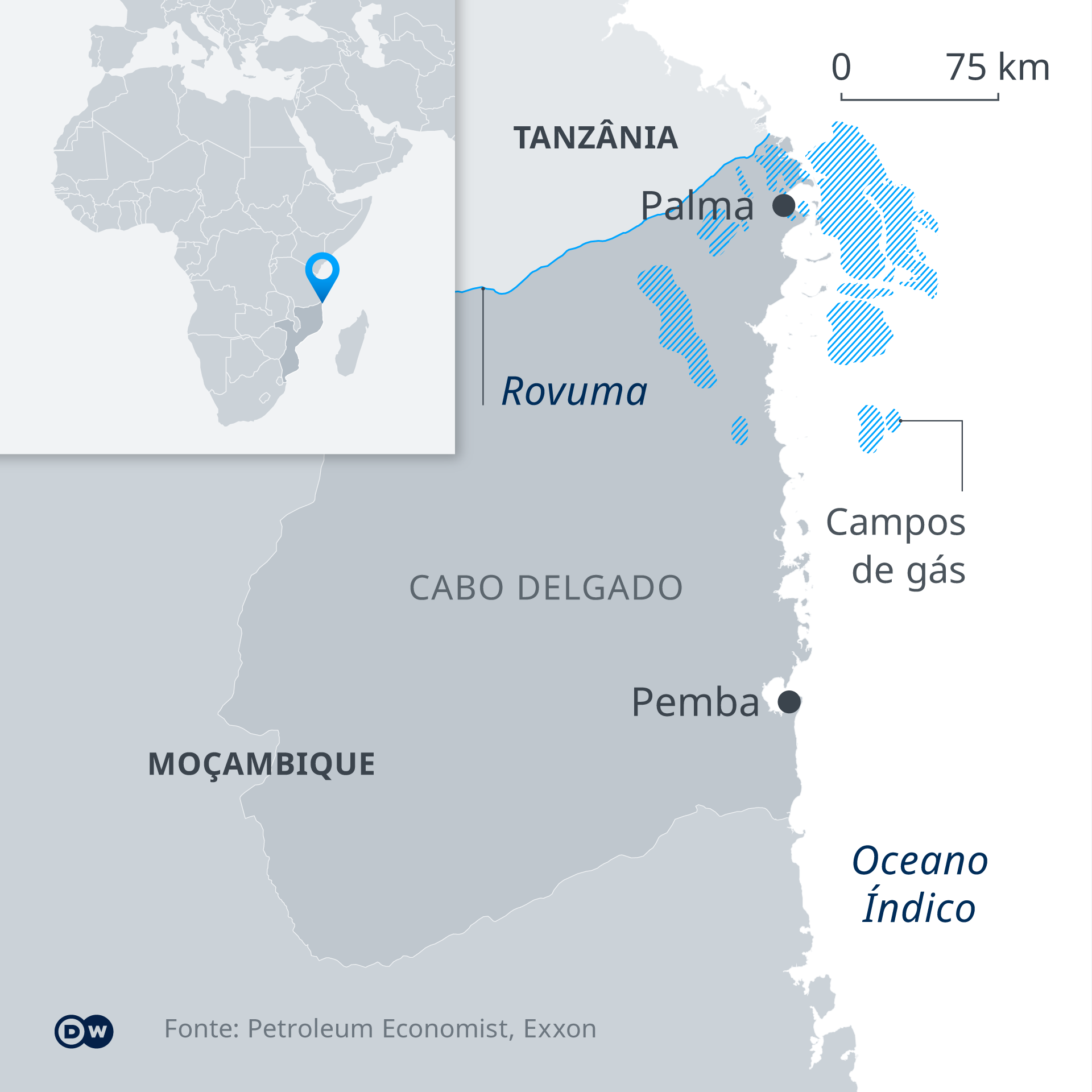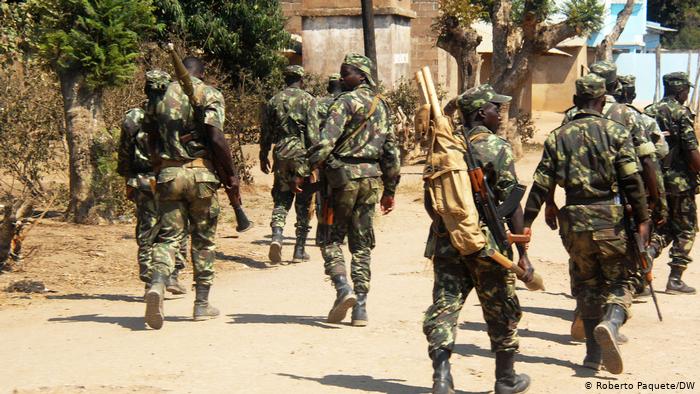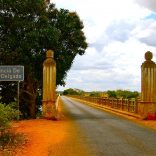Mozambique: Terrorists accused of using children as shields
“War in Cabo Delgado can only be solved through accord with Tanzania” – researcher

FILE PHOTO - Mozambique Rapid Intervention Unit [Fie photo: DW]
- A Mozambican academic and researcher based in Lisbon says the “war” in Cabo Delgado will only end when an agreement on the transfer of part of Mozambican gas revenues is signed with Tanzania. “The Maconde ethnic group is helping to fight the jihadists,” he adds.
According to Fernando Jorge Cardoso, professor and researcher at the Centre for International Studies at ISCTE (Instituto Universitário de Lisboa), some of the clashes in Cabo Delgado will be contained in the first quarter of next year, but the ultimate solution will involve an agreement with Tanzania, from where many of the ‘jihadist’ fighters now operating in the region come, or which they pass through and where they take refuge.
“It is very likely that in the first quarter of next year, part of the war – not the conflict, because this is a much more comprehensive thing – will be contained, but not resolved,” the researcher said in a DW Africa interview published on Saturday (January 2).
After the military defeats, “many of the insurgents will flee to the south of Tanzania, but always thinking about returning. So the solution to the war is negotiations with that country”, he stressed. The researcher recalled that Mozambique’s northern border is all with Tanzania, a country “where the conflict [with jihadists] is not resolved”.
“International gas consortia”

“The Tanzanian government was never satisfied with the way in which decisions were made by international gas consortia” basing their plants and other undertakings all on the Mozambican side, and nothing in the south of that country, Cardoso says.
Which means that there needs to be “an improvement in relations” between the two countries, which, in Cardoso’s opinion, “is only possible if the Tanzanian government joins in the sharing of some of the benefits of the gas”.
He believes that “it is in the interest of the Mozambican government and international, public and private consortia [which are going to exploit natural gas in Mozambique and who are making one of the largest investments in Africa in the region] to carry out some work in this regard”.
Cardoso also believes that greater participation by the Islamic Council of Mozambique is essential in resolving the conflict, noting that the Islamic ‘jihadists’ who now operate in Cabo Delgado have two components. The first, original, component is composed of “Mozambicans who have been studying in mosques and madrassas [schools] outside the country since the 1990s”, and who, when they returned to the country, “were ostracised”.
The Islamic Council of Mozambique is “in open war” with this faction, and therefore “one of the main supporters of the Mozambican government, and one of the institutions telling the executive that it must act with more determination and with more strength in relation to these practitioners of what they call a false religion”, he stressed.
This also means that “the long-term solution to the conflict, which has an important religious component, (…) implies greater coordination between the Islamic Council with the Mozambican government, in order to identify and close mosques which practice this type of rite, not only in Cabo Delgado, but also in Nampula”.
Tanzanian fighters
The Portuguese researcher says the [recent] unexpected strides by elite Mozambican forces and the retreat by insurgents may not even leave time for intervention by any international force in Mozambique before the problem is resolved.

Since then, to the surprise of the Mozambican government, “the war has risen in intensity”, with new foreign ‘jihadists’ entered the conflict – experienced fighters, particularly Ugandans, but also some Congolese and other ethnicities crossing from southern Tanzania.
“Much more sophisticated weaponry is being used, and command of operations is assumed primarily by foreign fighters,” he said.
However, “with the absolutely unexpected strides made by Mozambican elite forces and the retreat by insurgents” in recent weeks, there may not even be time for the intervention of “an international force in Mozambique, before the problem is solved”.
With the rainy season continuing, “the war has to be aerial”, using only “small specialized counter-guerrilla units [on the ground]”.
These units, according to the researcher, “have been in preparation for some time, not only in Nampula, but elsewhere [in Mozambique]” with quiet support from the USA and France.
“The Maconde are helping to fight the ‘jihadists'”
However, the researcher also said that the progress achieved in the last few weeks against the jihadists in Cabo Delgado is also due to the mobilisation of combatants from the Makonde ethnic group, to which President Filipe Nyusi belongs.
“There is a group of the Makonde leadership who have mobilised the ethnic group to (…) end the threat of radical ‘jihadists’,” Cardoso said.
The result is an ethnic intervention in the war in Cabo Delgado, with “units of Makonde, former combatants [some already of advanced age], who hunt down the jihadists in the woods. This has been happening in the last month, and the achievements are absolutely fundamental,” he said.
Last Tuesday, terrorist groups in Cabo Delgado carried out two simultaneous attacks in the district of Palma, one of which was in the vicinity of the natural gas mega projects in Afungi.
The attacks occurred just one day after the Mozambican president, Filipe Nyusi, had asked the Defence and Security Forces for “maximum readiness” in the face of “enemy silence”.
Armed violence in Cabo Delgado began three years ago and is causing a humanitarian crisis, with more than 2,000 casualties and 560,000 people displaced, mainly to the provincial capital, Pemba, often without adequate housing or food.
About Fernando Jorge Cardoso
Integrated Researcher
CEI-IUL – Centre for International Studies (ESPP)
[Economy and Globalization]
CV Summary [@ ciencia.iscte-iul.p]
Fernando Jorge Cardoso coordinates the office of strategic studies and development of the Marquês de Valle Flôr Institute, IMVF. He is a guest associate professor at ISCTE-IUL, member of the respective Center for International Studies and executive director of the Lisbon Club. He is an economist, graduated (1976) from Eduardo Mondlane University and a doctorate (1991) with public habilitations (2006) from ISEG, the Higher Institute of Economics and Management of the University of Lisbon. In Mozambique, he was director of the School of Economics (1978-1983), advisor to the Minister of Planning (1977-1983) and general director of Maragra, a sugar company (1983-1985). In Portugal, he headed the Africa programme of the Institute for Strategic and International Studies (1991-2012), was vice-rector of the Modern University of Lisbon (2000-2007) and full professor at Fernando Pessoa University (2010-2012). Coordinated some 2 dozen research projects, conducted cooperation and development consultancies in various countries for UNDP, the EC, the Camões Institute and the PALOP-TL and organized and participated as a speaker in numerous national and international seminars. international. He was co-chair of the Organising Committee of the Estoril Conferences (2009 and 2011) and co-chair (2007-2015) of the Europe-Africa Policy Research Network (EARN), a group of 24 think-tanks and academic research centers from various European and African countries. . He was member of more tnah a hundred master’s and doctoral juries, is the author or co-author of a dozen autonomous books and publications and around half a hundred articles in books and academic journals, and has made numerous oral and written communications at academic and professional events. He is a regular collaborator in various national and foreign media. Current areas of interest are sustainable development, geoeconomics and geopolitics, and African studies.












Leave a Reply
Be the First to Comment!
You must be logged in to post a comment.
You must be logged in to post a comment.